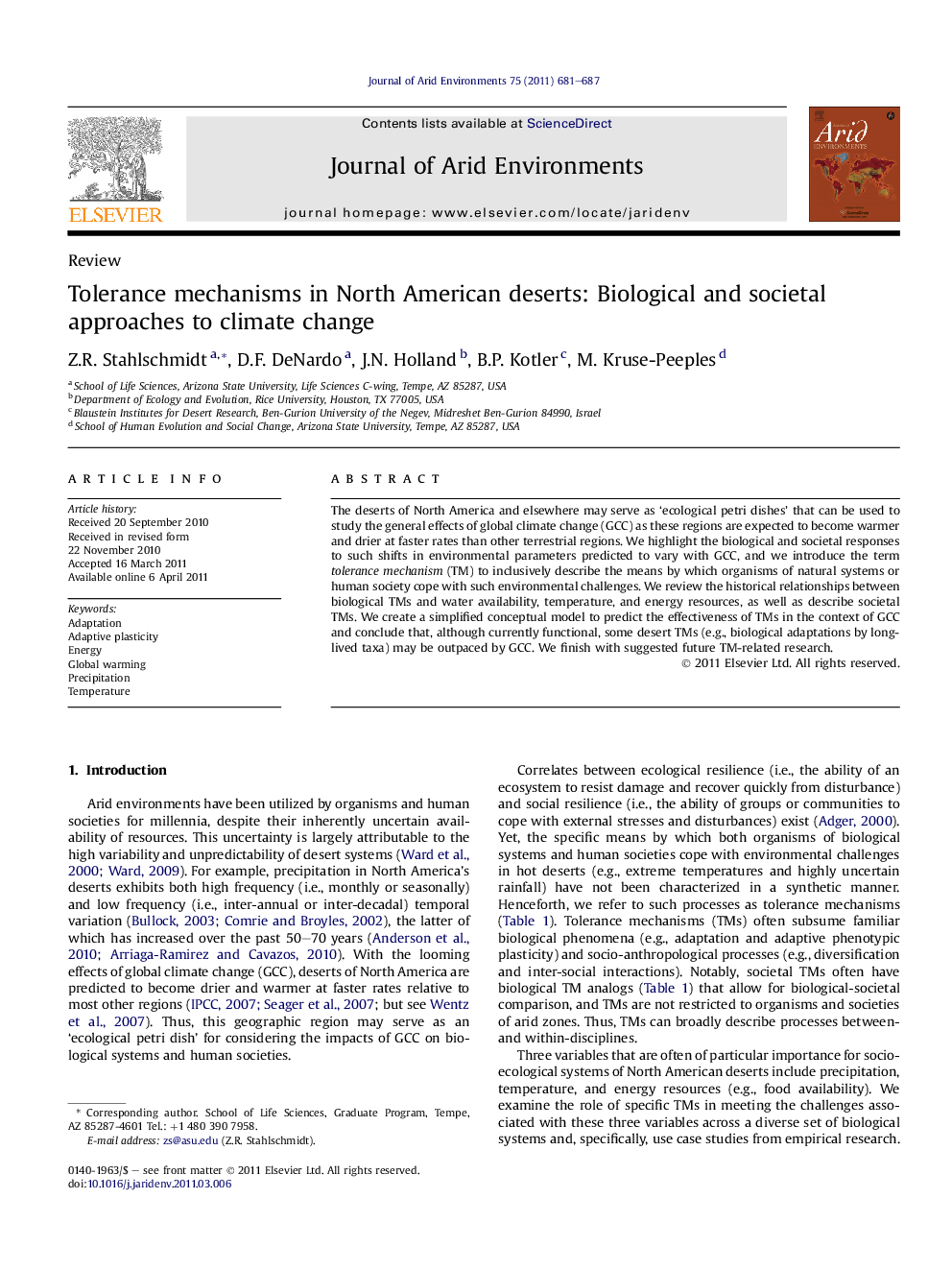| Article ID | Journal | Published Year | Pages | File Type |
|---|---|---|---|---|
| 4393504 | Journal of Arid Environments | 2011 | 7 Pages |
The deserts of North America and elsewhere may serve as ‘ecological petri dishes’ that can be used to study the general effects of global climate change (GCC) as these regions are expected to become warmer and drier at faster rates than other terrestrial regions. We highlight the biological and societal responses to such shifts in environmental parameters predicted to vary with GCC, and we introduce the term tolerance mechanism (TM) to inclusively describe the means by which organisms of natural systems or human society cope with such environmental challenges. We review the historical relationships between biological TMs and water availability, temperature, and energy resources, as well as describe societal TMs. We create a simplified conceptual model to predict the effectiveness of TMs in the context of GCC and conclude that, although currently functional, some desert TMs (e.g., biological adaptations by long-lived taxa) may be outpaced by GCC. We finish with suggested future TM-related research.
►The deserts of North America are useful ‘ecological petri dishes’ to study the predicted effects of predicted global climate change (GCC). ►We introduce the term ‘tolerance mechanism’ (TM) to unify the biological and societal coping responses to environmental challenges. ►With case studies, we show that TMs address the current hydrological, thermal, and energy-related constraints of desert systems. ►Notably, our conceptual model suggests that some desert TMs will likely be outpaced by the rates of GCC.
